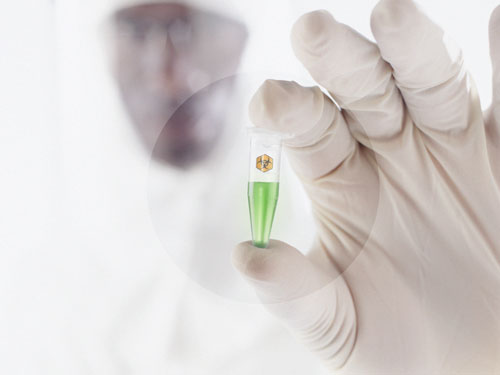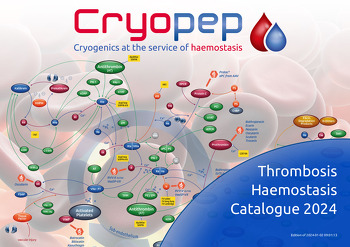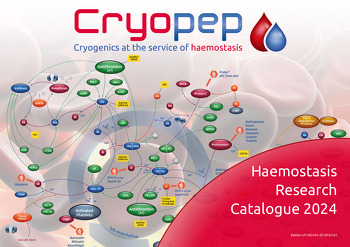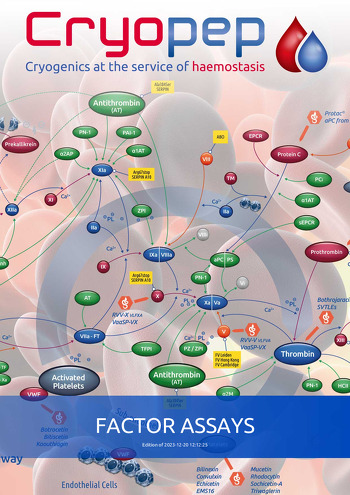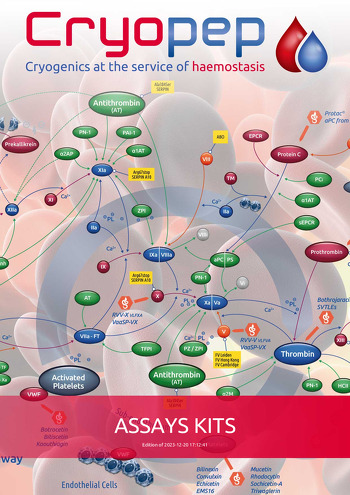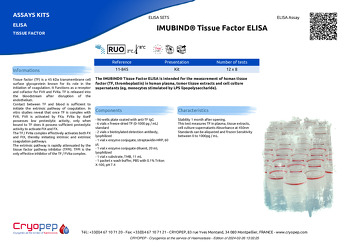Tissue factor (TF) is a 45 kDa transmembrane cell surface glycoprotein known for its role in the initiation of coagulation. It functions as a receptor and cofactor for FVII and FVIIa. TF is released into the bloodstream after disruption of the endothelium.
Contact between TF and blood is sufficient to initiate the extrinsic pathway of coagulation. In vitro studies reveal that once TF is complex with FVII, FVII is activated by FXa. FVIIa by itself possesses low proteolytic activity, only when bound to TF does it possess sufficient proteolytic activity to activate FIX and FX.
The TF / FVIIa complex effectively activates both FX and FIX, thereby initiating intrinsic and extrinsic coagulation pathways.
The extrinsic pathway is rapidly attenuated by the tissue factor pathway inhibitor (TFPI). TFPI is the only effective inhibitor of the TF / FVIIa complex.
Stability 1 month after opening.
This test measures TF in plasma, tissue extracts, cell culture supernatants Absorbance at 450nm Standards can be aliquoted and frozen Sensitivity between 0 to 1000pg / mL.
- 96-wells plate coated with anti-TF IgG
- 6 vials x freeze-dried TF (0-1000 pg / mL) standard
- 2 vials x biotinylated detection antibody, lyophilized
- 1 vial x enzyme conjugate, streptavidin-HRP, 60 μL
- 1 vial x enzyme conjugate diluent, 20 mL lyophilized
- 1 vial x substrate, TMB, 11 mL
- 1 packet x wash buffer, PBS with 0.1% Triton X-100, pH 7.4






